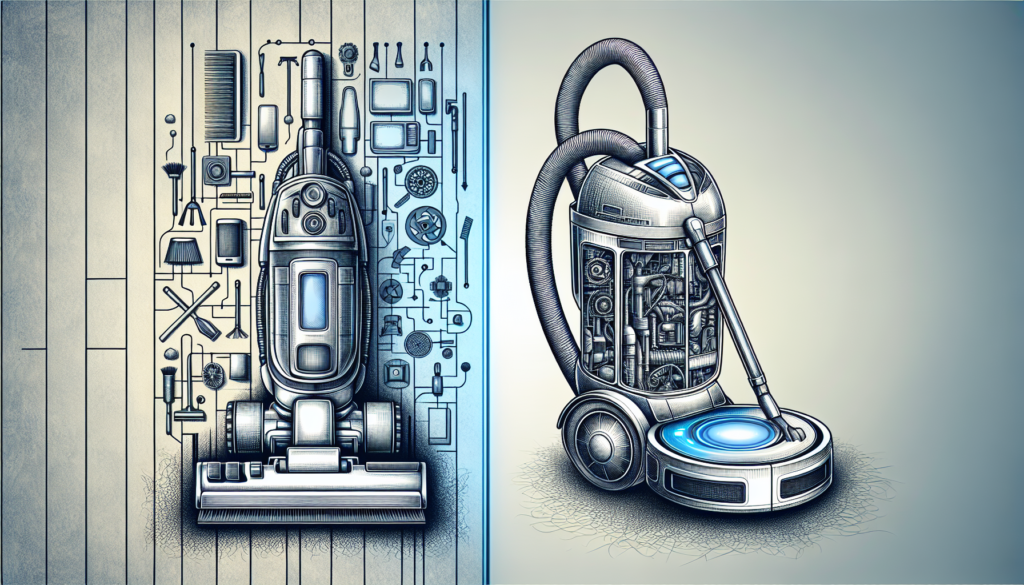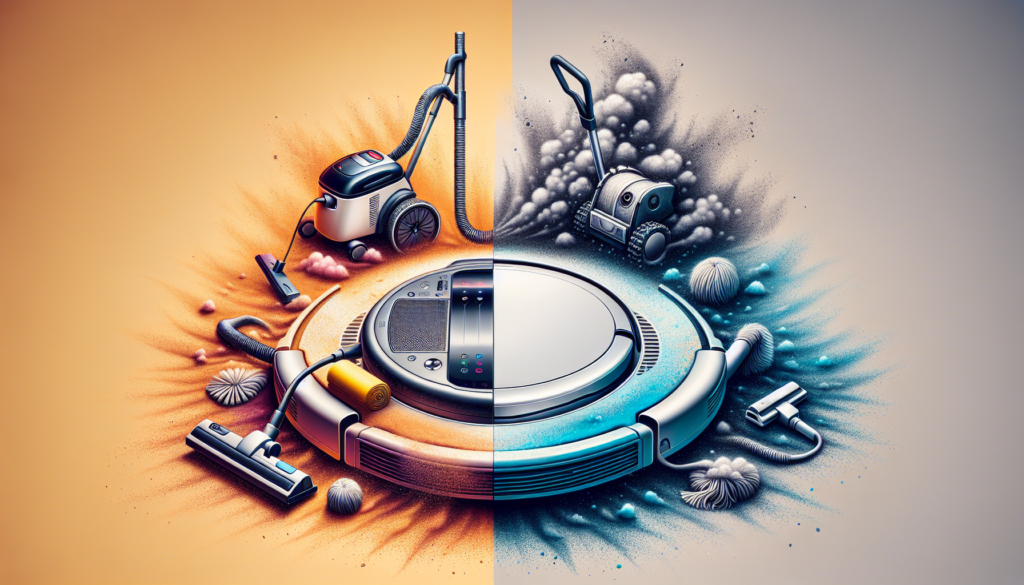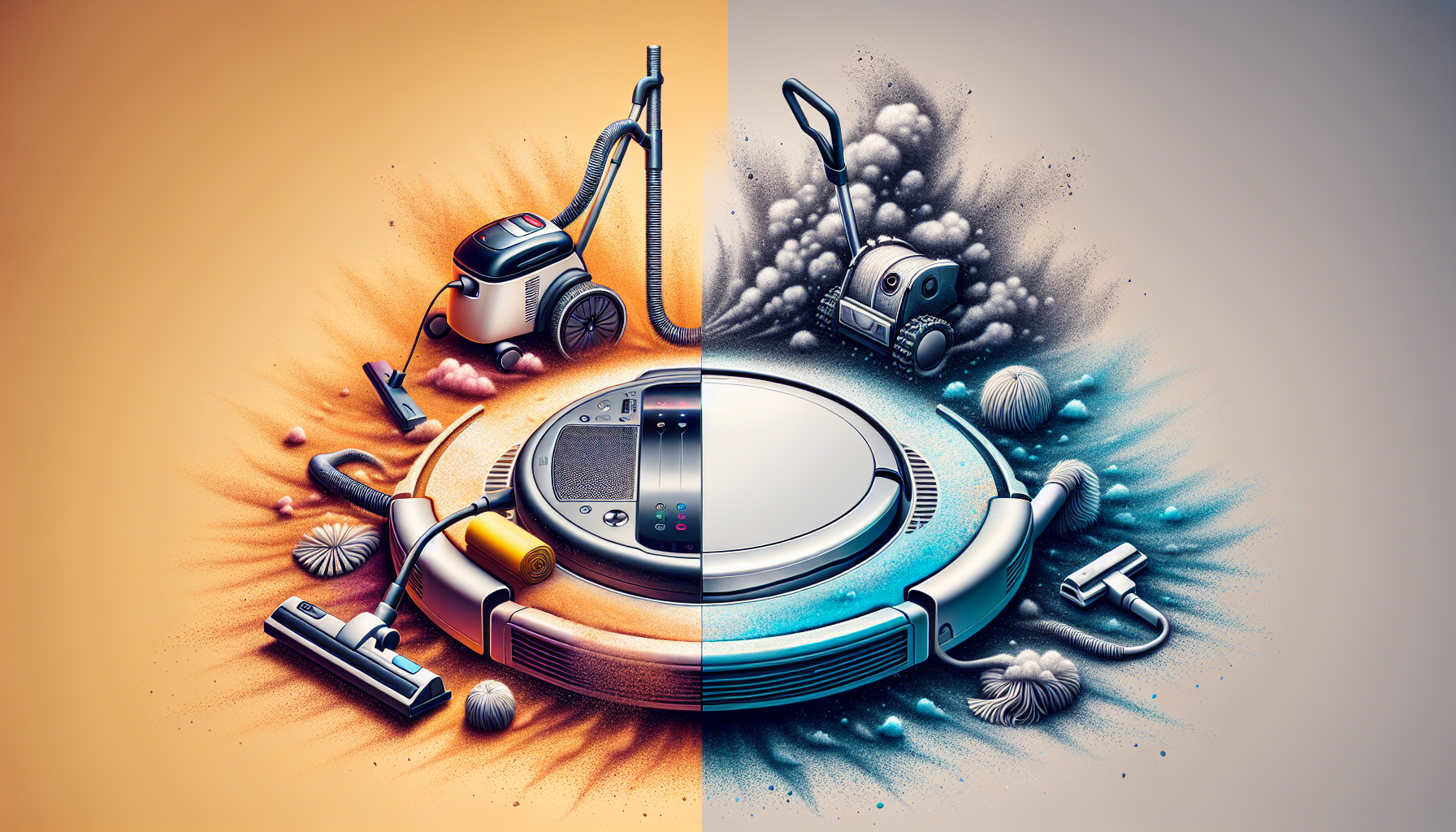In our modern world of convenience and technology, the topic of whether robotic vacuum cleaners can truly replace traditional ones has become a point of fascination. As we navigate the ever-evolving landscape of household chores, it’s hard not to wonder if these futuristic gadgets can live up to the high standards set by their manual counterparts. Are these robotic wonders truly effective at keeping our floors spotless or are they simply an intriguing novelty? Let’s explore the effectiveness of robotic vacuum cleaners and determine if they have the potential to revolutionize the way we clean our homes.
Efficiency of Robotic Vacuum Cleaners
In recent years, robotic vacuum cleaners have become increasingly popular due to their convenience and time-saving features. These cutting-edge devices are designed to autonomously clean floors, allowing users to focus on other tasks or simply relax. But are they really effective enough to replace traditional vacuum cleaners? In this article, we will explore the advantages and disadvantages of robotic vacuum cleaners, compare them with traditional vacuums, discuss their cleaning performance, navigation and maneuverability, convenience and time-saving benefits, user-friendliness, intelligence and advanced features, cost and pricing, limitations, users’ experience and satisfaction, as well as their future potential and development.
Advantages of Robotic Vacuum Cleaners
One of the key advantages of robotic vacuum cleaners is their ability to take care of the cleaning for us. Once programmed or set up, these autonomous cleaning devices can tirelessly work to keep our floors clean, even when we are not at home. This is especially beneficial for busy individuals or those with limited mobility who may find it challenging to vacuum regularly. Furthermore, robotic vacuum cleaners are designed to effortlessly navigate around obstacles and furniture, reaching areas that may be difficult for traditional vacuums to access. This ensures a more thorough and comprehensive cleaning, leaving our floors spotless.
Disadvantages of Robotic Vacuum Cleaners
While robotic vacuum cleaners offer many advantages, they also have some limitations. One of the main disadvantages is their limited capacity to handle large debris and pet hair. Unlike traditional vacuums, which typically have larger bags or containers, robotic vacuums have smaller compartments that may need to be emptied more frequently. Additionally, their cleaning performance on certain floor types, such as high-pile carpets or uneven surfaces, may not be as effective as traditional vacuums. Moreover, robotic vacuum cleaners lack the deep cleaning capability that some traditional models offer, which may be necessary for removing tough stains or deeply embedded dirt.

Comparison with Traditional Vacuums
When comparing robotic vacuum cleaners to traditional ones, it is important to consider their cleaning performance, navigation and maneuverability, convenience and time-saving benefits, user-friendliness, intelligence and advanced features, as well as their cost and pricing.
Cleaning Performance
While robotic vacuum cleaners are efficient at maintaining a clean environment through their regular cleaning cycles, some traditional vacuums may offer more powerful suction for a deeper clean. Traditional vacuums are often equipped with features such as adjustable brush heights and specialized attachments, allowing users to tackle various surfaces and cleaning challenges. However, robotic vacuum cleaners excel in their ability to provide consistent cleaning on a daily basis, ensuring floors remain tidy and free of debris.
Navigation and Maneuverability
Robotic vacuum cleaners have advanced navigation systems that allow them to map and plan paths to effectively clean an entire area. They use sensors and algorithms to detect obstacles and adjust their course accordingly. Traditional vacuums, on the other hand, require manual maneuvering and may struggle to reach certain areas or navigate around furniture. Robotic vacuums also have the advantage of being able to move from room to room seamlessly, saving time and effort for the users.
Convenience and Time-Saving
One of the key selling points of robotic vacuum cleaners is their convenience and time-saving capabilities. These devices can be programmed to clean at specific times, ensuring that our floors are always clean without any effort on our part. This is especially useful for individuals with busy lifestyles or those who simply want to spend more time doing things they enjoy. Traditional vacuum cleaners, while effective, require manual operation and can be physically demanding, especially for larger homes or multiple floors.
User-Friendliness
Robotic vacuum cleaners are designed to be user-friendly, with easy setup and control. Most models come with intuitive controls and displays, allowing users to program cleaning schedules and adjust settings as needed. In addition, many robotic vacuums offer app integration and smart home connectivity, allowing us to control and monitor the cleaning process from our smartphones or other devices. Traditional vacuums may require more manual effort and may not offer the same level of convenience and ease of use.
Intelligence and Advanced Features
Robotic vacuum cleaners are equipped with advanced sensor technology that allows them to detect dirt and adjust their cleaning pattern accordingly. They also feature carpet detection capabilities, automatically adjusting their suction power to accommodate different floor types. Many models also come with virtual barriers or no-go zones, allowing users to restrict the areas that the vacuum can access. Traditional vacuums, while effective, lack these intelligent features and may require more manual intervention on the part of the user.
Cost and Price Comparison
In terms of cost, robotic vacuum cleaners can be initially more expensive compared to traditional vacuums. However, when considering the convenience and time-saving benefits they offer, as well as their efficient cleaning performance, the initial investment can be seen as a worthwhile long-term investment. Additionally, the maintenance and replacement costs should also be taken into account. Robotic vacuums may require periodic maintenance, such as cleaning the brushes and filters, as well as battery replacement when necessary. Traditional vacuums may require less maintenance, but may also require occasional repairs or replacement parts.
Limitations of Robotic Vacuum Cleaners
Despite their many advantages, robotic vacuum cleaners have some limitations. As mentioned earlier, they may struggle with handling large debris and pet hair due to their smaller compartments. This means that regular emptying is necessary to maintain their cleaning effectiveness. Additionally, for deep cleaning needs or when dealing with tough stains, traditional vacuum cleaners may still be the preferred choice. Lastly, robotic vacuum cleaners have limited manual intervention compared to traditional vacuums, as they are designed to operate autonomously.

Users’ Experience and Satisfaction
To gauge the effectiveness of robotic vacuum cleaners, it is important to consider user experiences and satisfaction. Reviews and ratings from actual users can provide valuable insights into the performance and reliability of these devices. Real-life testimonials can also highlight the convenience and time-saving benefits that robotic vacuums offer. Preferences for traditional or robotic vacuums may vary depending on individual needs and preferences, with some users finding the convenience of robotic vacuums outweighing any limitations they may have.
Future Potential and Development
As technology continues to advance, the future potential for robotic vacuum cleaners looks promising. Advancements in artificial intelligence and machine learning algorithms will further enhance their cleaning performance and ability to adapt to various floor types. Integration with other home devices, such as smart speakers or security systems, will make robotic vacuums even more seamlessly integrated into our daily lives. These developments will undoubtedly contribute to their efficiency and effectiveness, potentially making them a viable alternative to traditional vacuum cleaners in the near future.
In conclusion, robotic vacuum cleaners offer many advantages in terms of convenience, time-saving, and efficient regular cleaning. While they may have some limitations compared to traditional vacuum cleaners, their advanced navigation systems, user-friendly features, and intelligent functions make them a viable option for many households. As technology continues to progress, it is likely that robotic vacuum cleaners will become even more effective and capable of replacing traditional ones. Whether robotic vacuums completely replace traditional models depends on individual preferences and needs, but their potential for efficiency and development is undeniable.

